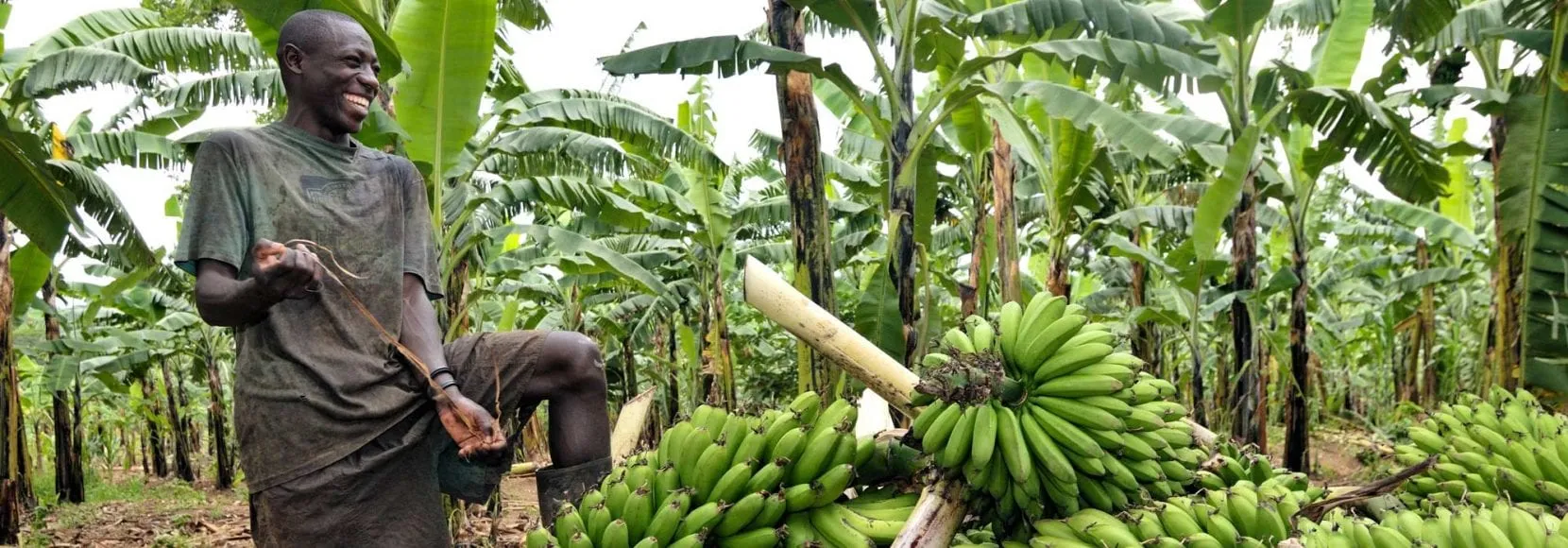KAMPALA, October 15, 2024 – The government should facilitate the formation of farmer-focused contributory social security schemes to help farmers save for unforeseeable shocks. Dr. Brian Sserunjogi, a research fellow at Economic Policy Research Centre [EPRC], said the “schemes would provide monetary support to farmers in the event of shocks and vulnerabilities such as illness, injury, disability, death, and old age.”
The issue was the subject of debate at the recent 12th Annual Forum on Agriculture and Food Security at Gold Hotel in Kampala organized by the EPRC. Farmers remain one of those categories that lag on social security with no coverage from either the National Social Security Fund [NSSF] or any other contributory scheme. Majority of Ugandan households are farmers, and it means that most Ugandans have no fallback in terms of social security in case of shock or in old age.
An EPRC analysis of selected enterprises such as banana, coffee, maize, sugarcane, beans, and dairy cows shows that households engaged in these earn up to Shs 4 trillion annually with an average of Shs 580,000 per household. This shows that the assumption that there is no in the sector to contribute to social security schemes is a myth, said Sserunjogi.
He noted that to reduce costs of administration for collecting the contributions, farmers can be organized in groups [cooperatives or producers’ associations] that enter into group insurance agreements with a central social insurance scheme. The Fund can receive all contributions made by farmers from the leadership of farmers’ cooperatives. The suggestion for the farmers’ contributory schemes drew mixed reactions from attendees of the forum.
Allan Munabi, Head of Strategy services at NSSF, said: “At NSSF, we really want to cover these farmers because [we are] a national fund…it is our desire that we cover all these farmers. [NSSF] is interested in how we can reach these farmers.”
He added that their challenge was “that smallholder farmers are scattered and are not organised and operate in a non-cash economy. So how do we get them into cash economy and how can we get them into NSSF.”
Kapasa Menya from International Labour Organization [ILO] said: “As ILO, we would like to look at it even going beyond farmers and investigate the general informal economy. Farmers are not the only group that need social protection.”
She added: “There is need for a supportive legislative framework. We see that the current framework is tilted towards the formal economy. So, if you’re going to work towards having everybody having social security, we need to look at the legal framework. I am happy that the conversations are already underway. The question is how quickly we can have the legal framework and the regulations that spell out how to give everyone social security.”
Muhoozi Emmanuel, principal extension coordinator from the Ministry of Agriculture, noted that “majority farmers are small-scale farmers – their incomes are small, and they can’t incentivise them to save whether mandatory or not. They have other competing needs. The entry point for the farmers to contribute to social security would be to commercialize. If I have disposal income, then I can easily save. We must make sure farmers are able to produce, consume and sale.”
Participants called for the growing farmers’ income, production, and productivity if contributory schemes were to succeed.
Dr. Ibrahim Okumu, an academic at Makerere University said: “You cannot contribute when you have zero income. We ought to look at the entire ecosystem and in that respect, we need to look at production, productivity, grow incomes and in that we can start speaking about contribution to these kinds of schemes but most importantly in terms of structural contributions, we are an economy that designs institutions for the formal sector, yet the largest proportion of this economy is informal.”
Victoria Ssekitoleko, the former Minister of Agriculture and Chairperson of Uganda Agribusiness Alliance, said she was “happy that this topic is being discussed. I am sure there will be a policy.” She added, however, that farmers’ conditions should be studied carefully and schemes that suit them be implemented.
“If NSSF starts to collect this money, the delivery should be there. It is good if NSSF can have a system where at the end of the year, you give back something then you will know how to deal with farmers.”
In a policy brief, EPRC researchers have put forward ways the contributory scheme for farmers can be implemented.
The first measure is to put in place collective insurance agreements between central social security funds and farmers’ cooperative societies or associations to reduce both the administrative challenges and transaction costs of insuring individual farmers.
Second, the mandatory registration of all farmers according to contributory capacity to foster a progressive compliance system.
Third, the creation of schemes for farmers with differentiated contribution rates based on the total value of agricultural production. Uganda can pick lessons from the three measures adopted by other countries to inform its regulatory frameworks and extend coverage to farmers.
https://thecooperator.news/minister-amongi-lauds-fao-for-expanding-social-protection/
Buy your copy of thecooperator magazine from one of our country-wide vending points or an e-copy on emag.thecooperator.news
